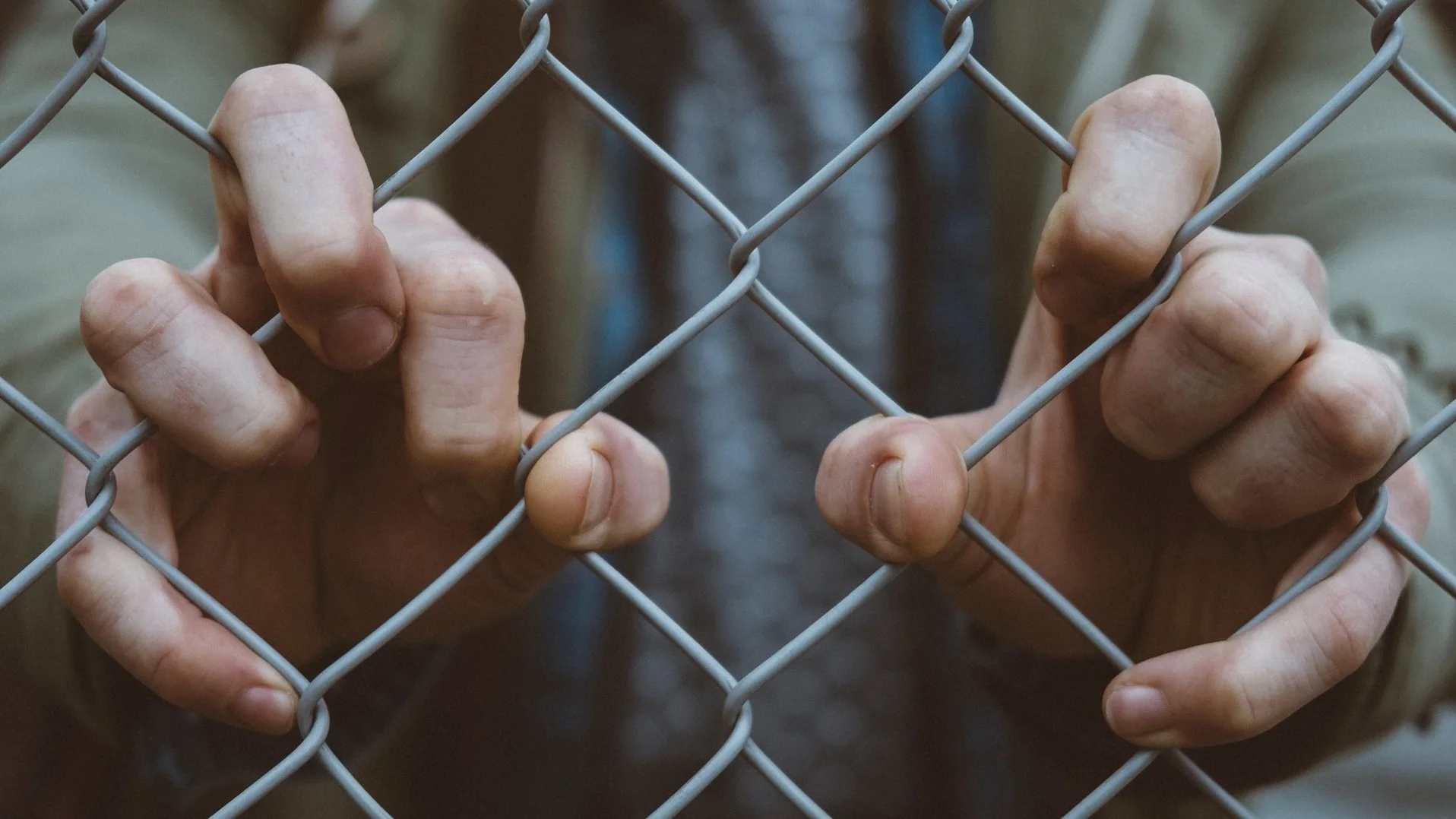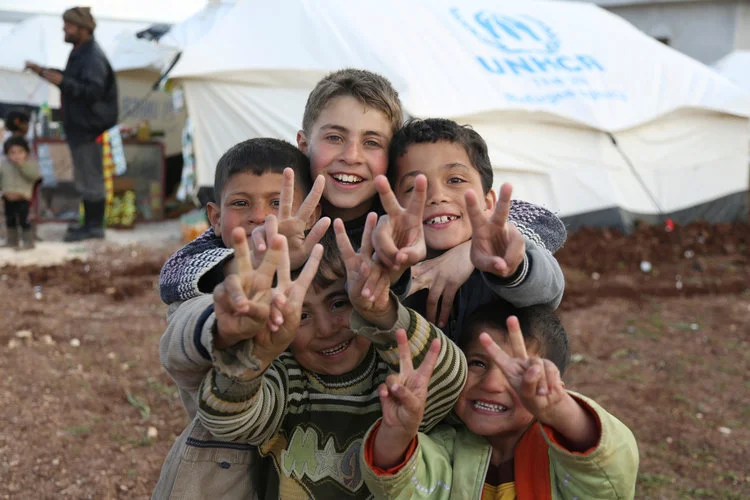
How we help
ACT International empowers local people to heal psychological trauma in children and young people affected by conflict, violence and disaster.
A global crisis
250 million children are affected by conflict globally. Millions more have lives shattered by violence or natural disasters. Many will go on to develop psychological trauma, forced to relive the worst moments of their lives again and again and again. It makes a normal life impossible.
250 million children are affected by conflict globally
Over 35 million children are forced to flee their homes and communities by armed conflict or persecution
Over 300,000 children are fighting in conflicts in over 20 countries
These children may have witnessed family members die, or been the victims of violence, sexual assault, or abduction. Some will develop psychological trauma (PTSD), reliving the worst moments of their lives in flashbacks and nightmares again and again.
Trapped in the horror they have experienced, a normal life is impossible.
Less than 2% of development money for health globally goes towards mental health. There is often no treatment available for children with psychological trauma in areas impacted by conflict and disaster.
Without treatment psychological trauma in children affects learning, development and brain function.
Today’s damaged children may become tomorrow’s damaged adults.
We can’t change what happened, we can change what happens next; healing young minds and helping them thrive.
About psychological trauma
Psychological trauma, PTSD or Traumatic Stress is a disorder caused by experiencing or witnessing a traumatic, life-threatening event.
Victims experience the worst moments of their lives in flashbacks and nightmares as if the events were happening, again and again. The memory of the event has ‘stuck’ in the brain.
Children may stop playing, stop seeing their friends, and be unable to sleep. Their feelings of anxiety and terror can be overwhelming, and many become depressed as the world seems full of threats and dread.
Without treatment many children will never get better.
Healing young minds in conflict
Our experienced trainers teach mental health professionals and local people around the world to treat children who have suffered psychological trauma due to conflict, violence and disaster. These children may have witnessed close family members die. They may have suffered violence including abduction and rape or been forced to act as child soldiers.
Many of these children are refugees and asylum seekers many miles from home.
How we work
Training
We provide individually tailored training led by experienced child mental health and education experts. They train NGO staff responding to conflicts and disasters as well as local mental health professionals and others working closely with traumatised children to treat post-traumatic stress disorder (PTSD).
In CATT children create characters to help them reprocess their traumatic memories
Our projects focus on trauma training and we specialise in teaching the Children’s Accelerated Trauma Technique (CATT), an effective trauma treatment for children and young people.
Our model enables local people to use CATT and allows those who have gained a high level of experience to train others.
This generates growth in the skills needed to treat PTSD ensuring the sustainability of our work, and strengthening communities.
It means we can help children in parts of the world where mental health services are non-existent or under-resourced.
We also provide related training in anxiety and resilience, children’s rights, child development, safeguarding and how to work effectively with children who may be hard to engage in therapeutic work.
Ongoing support
We offer ongoing support for some individuals and community organisations caring for traumatised children with very limited resources. For example, through the ‘Friends of Butabika Children’s Ward’ we offer ongoing support for the rights of child patients and support staff to provide high quality care and treatment in an area with very limited medical resources.
Butabika Hospital, Uganda
Our Plans
We are committed to expanding our training and support to wherever children are suffering. In response to requests from colleagues in the Middle East and Africa, we aim to develop new courses in children’s mental health, and provide further support in areas with few resources.
Akiki, Age 12
Akiki was 12 years old when unusually heavy rains caused widespread flooding in his hill-side village. Then the hillside itself started to move as liquid mud engulfed people and homes. Akiki ran from the school playground searching for his family, not knowing if they were alive or dead, until he found his father’s body floating in the muddy water.
The bereaved family were now left without any source of income and the disaster had a huge impact on Akiki. Every night, he would see his father's body in his dreams. He seemed terrified and panicky whenever rain threatened and he refused to go into the school playground where some of his friends had been buried. His mother could not understand why her bright son now refused to go to school, why he was so quick to become angry and pick fights with his siblings, or to cry. He was often depressed and unresponsive.
This continued for months until Paul, an ACTI-trained CATT counsellor, arrived to help children traumatised by the disaster. Akiki was reluctant to see the therapist but soon came to trust him. With Paul's help, he was able to process his traumatic memories and learned simple ways to help with anxiety. He looked forward to his sessions. His nightmares diminished, and his relationship with his family and behaviour at home improved. Akiki started to play out with friends again, and to go to school regularly. He mourned the death of his father and friends and dreaded another mudslide, but he was now less burdened by the tragedies and more positive about the future.
Omollo, Age 13
13 year old Omollo was one of a group of Ugandan girls who were about to be trafficked to a neighbouring country when their cries of fear and distress alerted passers-by. They were taken to the Bishop Asili Counselling Centre in Lira, where they were given food and shelter. The other girls recovered quickly but they reported that Omollo was wandering around all night, couldn't stay still and was frightened of everyone she met. They thought she was 'mad'.
Sister Florence, who runs the centre, managed to gain the child's trust and gradually discovered that this abduction was the latest in a series of traumatic events. Omollo's mother was disabled, shunned and abused by her neighbours and forced to beg in order to survive. When Omollo was only seven, she was sent to Kampala to work as a domestic slave, and was physically and sexually abused. She was eventually reunited with her mother but then their house was attacked and burned.
Identifying complex post traumatic stress disorder, Sister Florence first made sure that Omollo's basic needs were met and then set about counselling her, carefully helping her re-process her traumatic memories using CATT. Over several months, Omollo found she could sleep at night and was no longer so fearful. She now feels she has some control of her own life and can dream of a future where she supports herself and her family through her newly learned skills as a tailor.
Rashid, Age 10
When war started in Syria, Rashid was only seven years old and couldn't understand why his parents and relatives were so anxious. Then one night their neighbourhood was bombed and he saw people injured and bleeding. He and his family were lucky to escape with only minor injures but they lost everything and home became a tent in a large camp of displaced people. For the next three years, symptoms of Post Traumatic Stress Disorder (PTSD) dominated Rashid's life and that of his whole family. He stopped playing, seemed listless and uninterested in family life, but he was quick to become angry for little reason. His parents found it difficult to cope with his mood swings. At school he was almost completely silent and often didn't seem to hear or see what was happening around him. Yet, when his teacher put out red pens for the class to use, he became really upset and ran crying from the room.
Now ten, Rashid's life is at last returning to normal. After several sessions with a counsellor trained by ACT International to use CATT, he was able to think about the night of the bombing without being overcome by terror. It was as if he had put those bad memories firmly into the past. After seven sessions of therapy, he has fewer angry outbursts and can sleep in his own bed untroubled by nightmares. He is much more confident and outgoing. His teachers reports that he now joins in all class activities but she avoids using red pens as a precaution.
Before his leg was amputated, Ahmed was a fun-loving child who loved playing football in the street outside his home in Gaza. He was injured when his neighbourhood was shelled and his house suffered a direct hit. In the months that followed, he had a series of operations as doctors focussed on his physical recovery. It was only gradually that his family saw how much emotional and psychological pain the bomb had inflicted.
The nine year old became quiet and withdrawn, reluctant to go outside. He tried to suppress bad memories and avoided anything that reminded him of the shelling but in nightmares he saw his mother trapped in the rubble screaming. Unable to explain the cause of his terror, he told his parents it was as if a monster was coming to crush him.
A year passed, then another, but Ahmed's fearfulness and sense of isolation grew. He was unable to complete the simplest task and some days he couldn't even get out of bed. Eventually he was diagnosed as having post-traumatic stress disorder and referred for treatment with a specialist counsellor who helped him process his memories and feelings and regain his confidence. It will take Ahmed more time to adjust to his disability, but the sense of fear has gone and he is back at school where he has new friends. He's had to abandon plans to become a famous footballer but is now studying hard and hoping to be an engineer like his father.
“I went to the centre and I told Sister Florence my problem and she counselled me. It has calmed me and released the sadness I was having and out of the counselling is what I am now, since I am improving and getting better”
Ahmed, Age 9
Stories
Support our work
You can’t change what happened but you can change what happens next. Support our work to help traumatised children.
Do you need our help?
If you are an individual or charity working with traumatised children and need training or support please contact us.
Volunteer!
We are currently looking for a volunteer fund-raiser. Please contact us if you can help!








